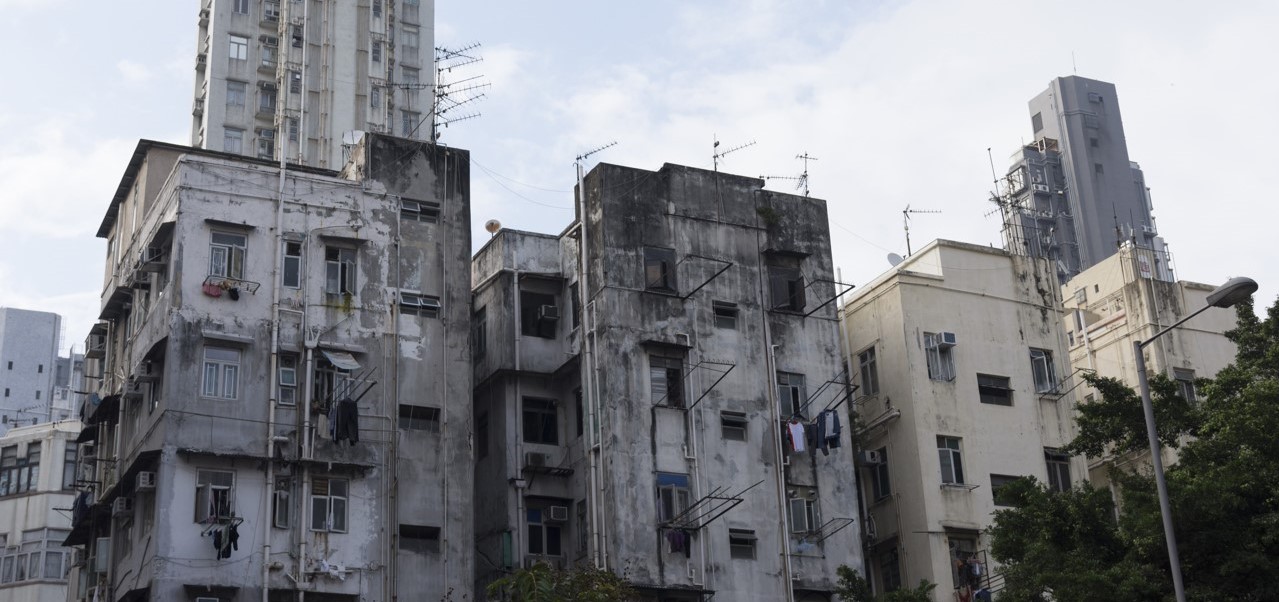By Alex Liu
Hong Kong, 30 August, 2023: Owners of old buildings who fail to carry out compulsory maintenance work have been put on notice that they face tougher action from the authorities. Numerous recent incidents of falling concrete or rendering from external walls have brought renewed focus on the issue, with the government conceding its inspection regime thus far has been too slow and lenient.
According to official figures, at the end of 2021 our city had more than 27,000 buildings that were over 30 years old. Some were built 40, 50 or even – in the case of around 3,500 blocks – more than 60 years ago. The figures include all types of property: residential, commercial, industrial and composite. Those considered most at risk of falling into disrepair are “three-nil” buildings that do not have an owners’ corporation, residents’ organisation or property management company.
Under the government’s Mandatory Building Inspection Scheme (MBIS), owners of buildings aged 30 years or above – except domestic buildings not exceeding three storeys – can be served with a statutory notice which requires them to appoint a registered inspector to examine the property and follow up with any necessary repair works. The inspector should be appointed within three months, the review completed within six months and the repairs done within a year.
Yet the scheme’s ineffectiveness was exemplified by a well-publicised incident in Mong Kok last month when fist-sized chunks of concrete rained down from a 17-storey building, the second such occurrence at the block in four days. It emerged the property was issued with an inspection notice in 2014, but its owners waited until 2018 to submit a maintenance subsidy application to the Urban Renewal Authority (URA) – the statutory body tasked with addressing inner-city decay – which only granted the request in 2021. The inspection report was handed in this past March. In summary, nine years after the inspection notice, the required repairs had still not been completed.
The government’s MBIS figures make for alarming reading. Some 4,800 buildings have outstanding inspection notices, 2,700 of which have passed the deadline for compliance. Around 900 of these have not even had an inspector appointed. Perhaps prompted by the heightened media coverage, the Buildings Department had, as of last week, sent some 700 warning letters to owners or owners’ corporations ordering them to hire an inspector immediately and provide a progress report within a month.
Secretary for Development Bernadette Linn has signalled the government will step up enforcement, telling a media briefing: “Of course, if some owners are obstinate or haven’t made an effort after repeated reminders, the department will not wait until the end of this year to prosecute them.” The authorities have since identified 30 buildings considered to be “potentially higher risk” and therefore in need of urgent inspection. This is being done by government-appointed inspectors and, should repairs be necessary, owners will need to pay a 20% surcharge.
Amid these developments, it is worth mentioning the Operation Building Bright (OBB) 2.0 programme. This is a government-funded HK$6 billion scheme, implemented by the URA, to subsidise eligible owners in co-ordinating inspection and repair works. Buildings that are able to co-ordinate the necessary works among themselves are Category 1, while those requiring government intervention – with the cost of repairs to be recovered from the owners later – are Category 2. Some 1,100 higher-risk buildings have been selected for Category 2, although the waiting time for inspection can be up to five years.
It should be stressed, of course, that such government interventions do not relieve building owners of their responsibility to ensure their properties are well maintained and in safe condition, which includes the need for regular inspections and timely repairs.
Under the Buildings Ordinance (Cap 123), anyone who fails to comply with a mandatory inspection order faces a maximum fine of HK$50,000 and one-year imprisonment. Offenders must also pay HK$5,000 each day until the order is carried out. Aside from these penalties, there is the obvious risk of criminal or civil liability for any resulting damage to persons or property.
Thus, the requirement for owners to properly maintain buildings is clear. If in doubt, citizens are strongly advised to seek professional advice. Here at BC&C we have considerable experience in property ownership and building management issues and are ready to help.
Alex Liu is Managing Partner of BC&C. He was Chairman of the Appeal Tribunal Panel (Buildings Ordinance) for nine years until 2018 and a frequent legal advisor on the TVB documentary series A Property a Day. His key areas of practice include commercial and corporate litigation, investigations by governmental bodies, and insolvency and debt restructuring. He can be contacted at alex@boasecohencollins.com.



